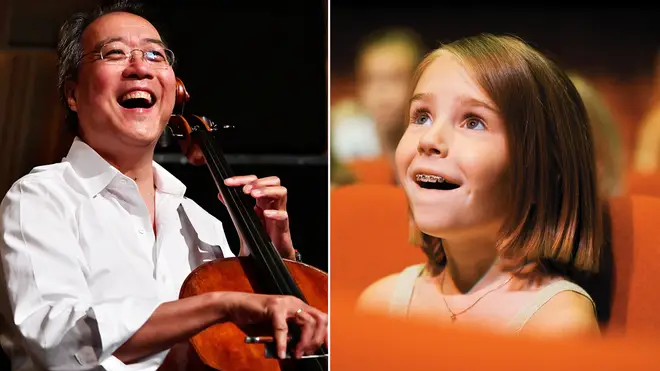On Air Now
Early Breakfast with Lucy Coward 4am - 6:30am
17 February 2021, 15:21 | Updated: 19 February 2021, 14:38

Research has found that listening to live classical music evokes positive feelings in children, and has a direct impact on their listening and concentration skills.
Children feel calm and relaxed while listening to live classical music, regardless of the piece being played, a study has found.
The research, conducted by music charity Apollo Music Projects (AMP), included 574 children between the ages of eight to ten, who took part in chamber orchestra workshops.
After the experience, they were surveyed about their thoughts and feelings on the live music and how it made them feel.
82 percent of children said they felt positive feelings during the live performance, with more than half of the group specifically feeling calm or relaxed while listening.
The majority of their teachers also noted that the workshops had directly influenced development in the listening and concentration skills of the children.

Watch young violinist Christian Li play some beautiful Bach
AMP carried out the research in 2018 and 2019, to explore what a child experiences during a live classical music performance.
Unsurprisingly, most of the children participating felt calm and concentrated when the music began.
However, the investigation also found these positive emotions did not correlate with the emotional content of the music being played.
Read more: ‘Classical 100’ music education resource is free for families in lockdown >
“The children seem to experience calm and concentration through the act of listening to the music,” the research explained.
The charity, which brings live classical music to children who might not otherwise have the chance to experience it, concluded that feedback from participants and their teachers provided strong evidence that live classical music has a positive impact on a child’s wellbeing.
Read more: Nicola Benedetti: ‘Music teaching is vital to a child’s education’ >

How would you improve music education?
AMP also undertook facilitated feedback sessions with 1,103 school children in 2019.
Of those who took part, 68 percent said they have been inspired to take up an instrument as a result of the programme.
David Chernaik, CEO of the charity, said: “The strong indications of our report are of a positive relationship between the practice of focused, active listening and wider emotional wellbeing.
“What is more, recognising and naming emotions, providing a different kind of creative outlet, are even more important for children during this crisis.”
David added: “Our work acknowledges the creativity, concentration and connection involved in the shared experience of live music.
“We risk our young people not having the chance to experience this in their most formative years, so while the safety of everyone is correctly being prioritised during the lockdown, in a post-vaccine world, giving opportunities for young people to experience the arts once more, in a Covid-secure way, will be crucial.”